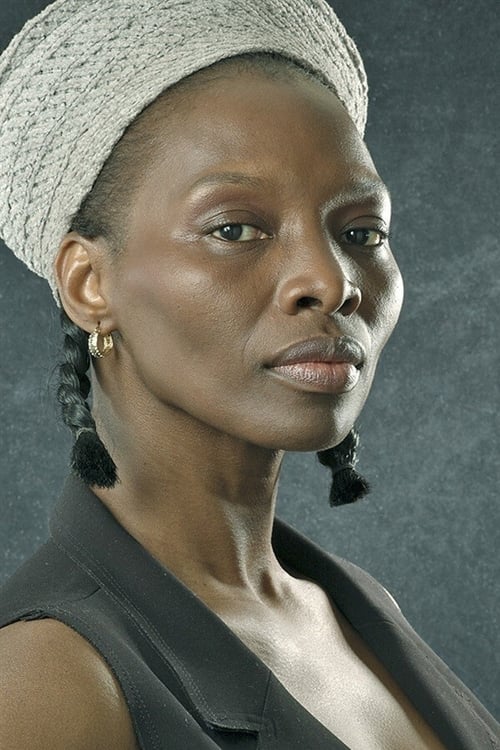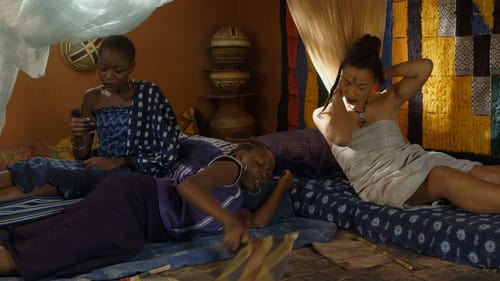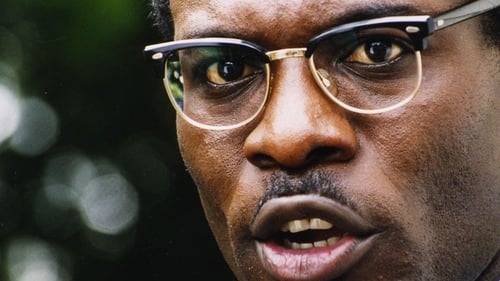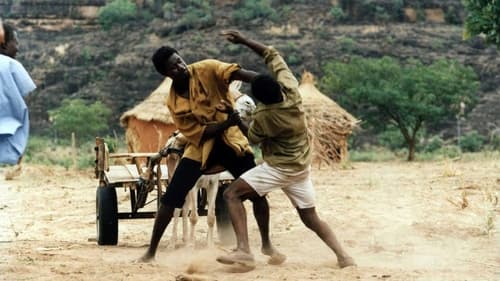
Mariam Kaba
Nacimiento : 1961-08-09, Beyla, Guinea
Historia
Mariam Kaba (born 9 August 1961) is a French-Guinean actress.
Kaba was born in Kankan, Guinea, the daughter of Mohamed Ba Kaba, a diplomat and the author of several books on Islam. She moved to France in the early 1980s. After receiving her baccalaureate, Kaba enrolled at École des nouveaux métiers de la communication largely at the behest of her father. She only attended the school for a year and spent the money her father sent her on acting lessons, studying under Isabelle Sadoyan.
Kaba's first stage role was as the wife of Toussaint Louverture, alongside Benjamin Jules-Rosette, director of the Théâtre noir in Paris. Soon thereafter, she landed a role in the TV series Marc and Sophie. In 1989, Kaba made her film debut in Périgord noir, directed by Nicolas Ribowski. She played Maina, a young woman who came to work in the Périgord region. In 1992, she starred in her first African film, Blanc d'ébène. A World War II epic directed by Cheik Doukouré, she played a nurse engaged to the teacher Lancéi Kanté. Later in the year, Kaba appeared in Idrissa Ouedraogo's Samba Traoré. She collaborated with Doukouré again in 1994, in Le Ballon d'or.
Her son was born in 1999. In 2000, Kaba played Pauline Lumumba, wife of the politician Patrice Lumumba, in Raoul Peck's Lumumba. Kaba had known his son, Roland, in her youth but did not want to meet Pauline in advance of the role. She fought for the role because she was interested in the history.
Kaba has appeared in more than 15 French TV shows and TV films, such as Navarro, Villa mon rêve, l'Avocate, Quatre cent suspects and Justice de femmes. Her most controversial performance was in the 2002 TV films Fatou la Malienne and Fatou l'Espoir, directed by Daniel Vigne. Kaba played the mother of Fatou, forcing her into an unwilling marriage. It sparked outcry in Mali and led to her being heckled on the street. Kaba explains that she read the script before meeting the real Fatou, and would never allow her husband to do a similar thing to her daughter.
Source: Article "Mariam Kaba" from Wikipedia in English, licensed under CC-BY-SA 3.0.

Infirmière Sénégal
Tres policías parisinos están acusados de llevar a un extraño de regreso a la frontera. Sin embargo, Virginie se da cuenta de que su prisionero probablemente será asesinado al regresar a su país y, por lo tanto, intenta convencer a sus compañeros oficiales de que lo liberen.

Salamata
After five years of graduate studies, Red is always in search of a job and fight every day against the exclusion. Slowly, he is moving away from Anna, the love of his life. As a result of a letter to him meaning its cancellation, he makes it to the Agency for the employment, where he refuses an appointment. Having nothing more to lose, he then takes hostage the staff and the public. As a final appeal to the help, he is decided to save what remains of its dignity.

Mrs. Cissé
Paul está casado con Sali. Todo sería perfecto si pudieran tener un hijo. Un día, Sali recibe la llamada que estaban esperando desde hace tanto tiempo: su expediente de adopción es aprobado. El niño es precioso, tiene 6 meses, se llama Benjamin, es rubio con ojos azules... y es blanco. Para la familia de Sali, de raza negra, esto supone un gran choque.

Recently returned to her home in the Sultanate of Zinder after completing her degree abroad, a young woman suffering from the pain of a lost love finds renewal while awaiting the mystical promise of a new moon.

Aminata
12 year-old Adama lives in a remote village in West Africa, sheltered by the cliffs. Out beyond lies "the world of wind," the kingdom of wicked spirits hungry for war. When his elder brother Samba suddenly vanishes from the village, Adama decides to set off in search of him, crossing into a Europe in the grip of World War I.

Gentivi
A small craftsman disappears, his brother, a grocer, searches for him and… to his surprise, he finds a misappropriation of Humanitarian Aid! Someone's lining their pockets, but who? And what is the little craftsman doing in there? Investigation, twists and turns, suspenses, prosecutions and murders follow! But, beyond this form, the substance never ceases to be present, namely: why do those who need it most accept to see a large part of the international donations intended for them disappear?

Manda Dialo
Because they could no longer stand the xenophobic comments and behavior of their neighbors, Véronique and Sylvain Marchand, parents of a little girl and members of the Stop Racism organization, went into exile in a quiet suburban town, where they bought a house, the villa "Mon rêve". Soon after, the Dialo family, friendly Africans, moved into the adjoining house. At first, the two families get along perfectly. The only problem was that the Dialos organized many parties, which often ended late at night. The patience and understanding of the Marchands only delay the inevitable conflict.

Aminata
A young vivacious Parisienne of African descent, dreams of becoming a fashionable hairdresser after graduation, but her aspirations clash with the traditional views of her family who forces her to marry a man she does not love. Fortunately, a friend comes to her aid.

Pauline Lumumba
The true story of the rise to power and brutal assassination of the formerly vilified and later redeemed leader of the independent Congo, Patrice Lumumba. Using newly discovered historical evidence, Haitian-born and later Congo-raised writer and director Raoul Peck renders an emotional and tautly woven account of the mail clerk and beer salesman with a flair for oratory and an uncompromising belief in the capacity of his homeland to build a prosperous nation independent of its former Belgian overlords. Lumumba emerges here as the heroic sacrificial lamb dubiously portrayed by the international media and led to slaughter by commercial and political interests in Belgium, the United States, the international community, and Lumumba's own administration; a true story of political intrigue and murder where political entities, captains of commerce, and the military dovetail in their quest for economic and political hegemony.

Saratou
Samba (Bakary Sangare) has returned unannounced to his home village, bringing with him a suitcase full of money. Despite his protests that this is money that he earned in the city, the villagers have their doubts. In fact, he held up a gas station and unintentionally killed its attendant, and is in hiding here. Meanwhile, he has married a woman (Mariam Kaba) with a child who left her husband and built a house for her. He is building a bar with his remaining money, but he encounters a situation which makes him believe that he will be exposed to the police, and runs away, leaving a pregnant, very ill wife behind, much to the disgust of the villagers and Samba's own family.

Saly
The year is 1943 and the place is Balandou, a small village in Guinea. The plot revolves around Adjutant Mariani, some kind of a misfit. Despised by his superiors, hated by his wife Marie-France, he represents colonial France while dreaming of Africa and its mysteries. When pro-independence Lanseye Kante, the new manager of the school, arrives in the village, turmoil arises.

The recolonization of Africa, this time by the very blacks who had to flee it as exiles during the time of the original French occupation, is the theme of this political comedy. Adiza, who has been living well in France, has decided that she will return and buy the plantation she and her compatriots were expelled from, and enlists some unlikely helpers to bring them back into the country and enact their plot. Meanwhile, these "local" blacks are unwittingly accepted by the other landowners as more cheap labor.









